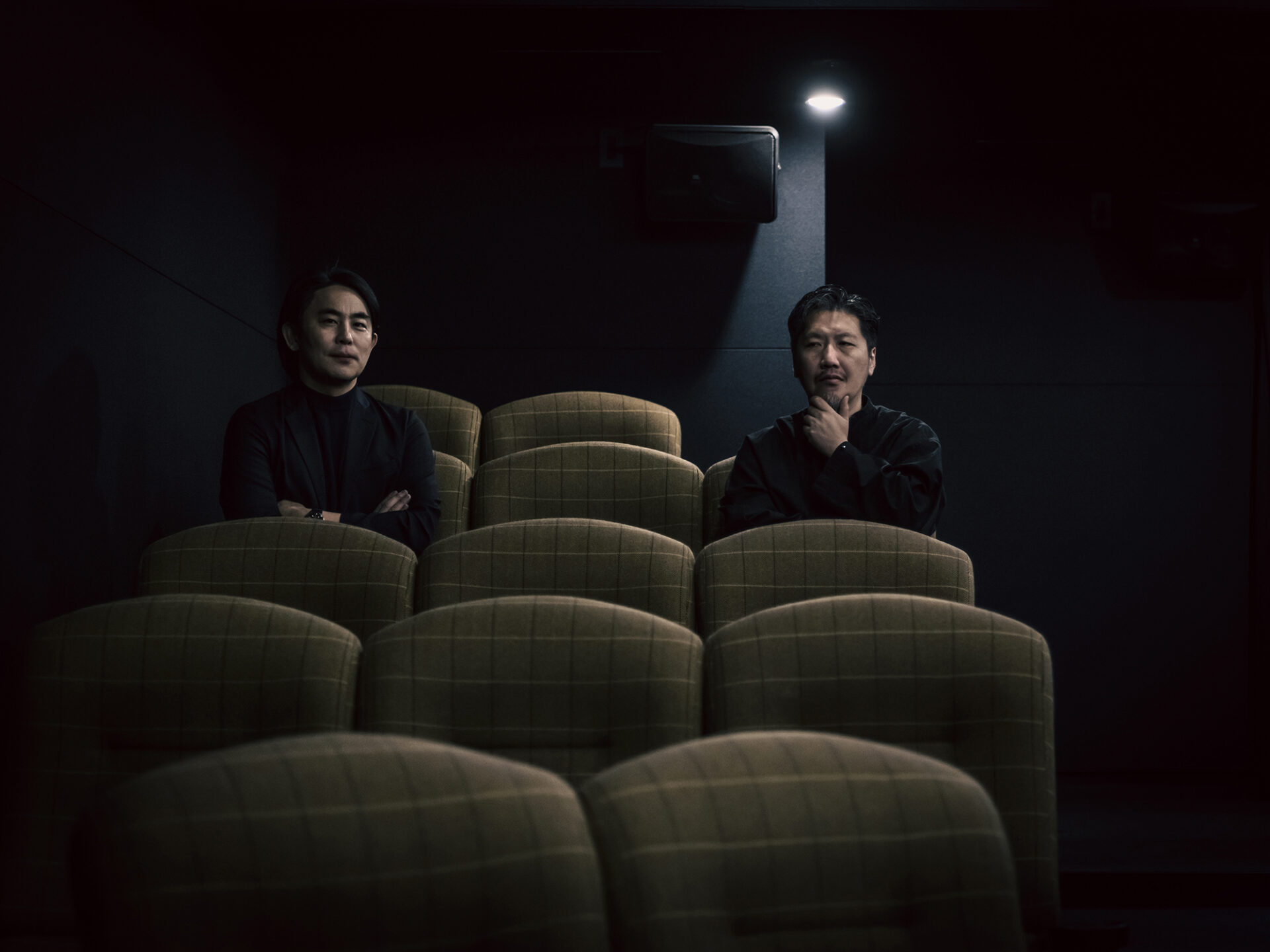
2023-12-16
Vol.1
MOTION GALLERY CEO
Takeshi Otaka
-
Diversity and Democracy
-
Crowdfunding as a Creative Expression
-
The Potential of Journalism by Individuals
-
The future shaped by “Social Sculpture”
While the importance of diverse values is widely acknowledged, peer pressure in society has been growing due to the widespread use of social media. What is required to move beyond the status quo?
Takeshi Otaka is the founder and CEO of a crowdfunding platform, MOTION GALLERY. He also provides broad-based support to film production. We talked with him about creating film culture by combining crowdfunding and mini-theater, and the potential of journalism by individuals.
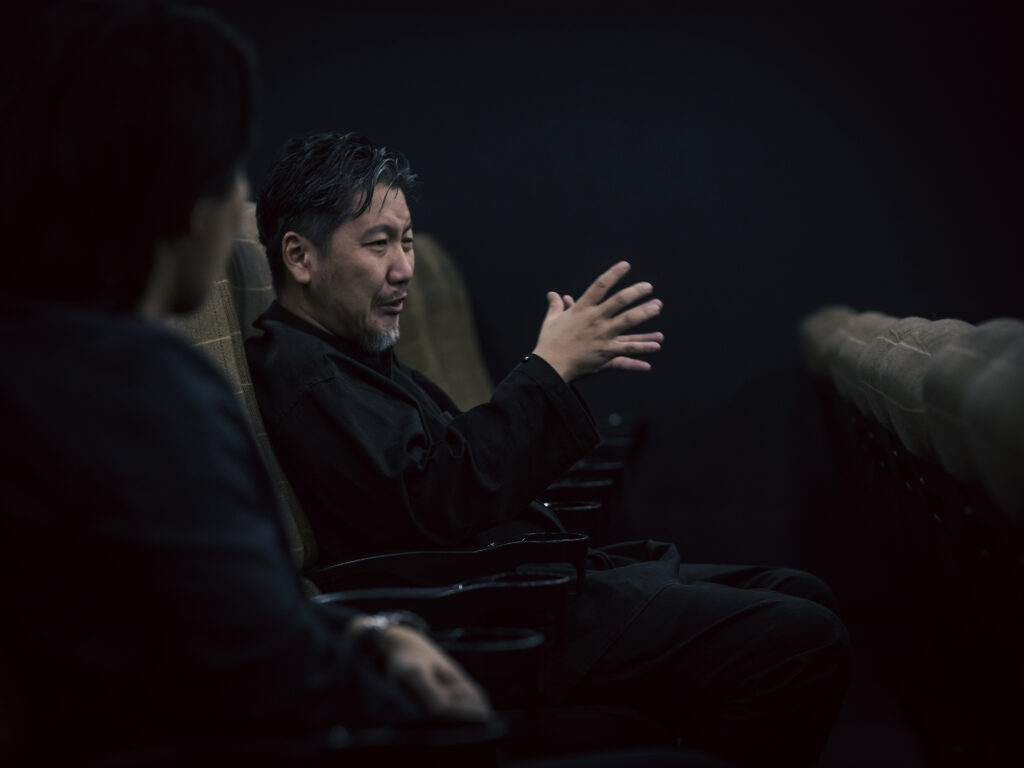
“Philosophy is the source of diversity; without it, society can never attain spiritual richness (Shigeta)”
Masakazu Shigeta: I think it was only after the collapse of the bubble economy that diversity finally gained acceptance in Japan. Around that time, the non-mainstream groups and stores in the backstreets gradually started to gain popularity.
Takeshi Otaka: I agree, like those in Ura-Harajuku.
Shigeta: Afterward, we saw the dot-com bubble collapse, which brought a tremendous threat to culture. Until then, investment companies calculated the payback period as 10 to 15 years. However, since the collapse advanced much faster than expected, they realized the situation was critical and had no time to wait long. As a result, they started focusing on short-term investment with 3-5 years of payback time. They started investing intensively in the marketing field—spending tremendous money to increase the number of users and promote brand awareness. The result was the massification of the brand. Although the worn-out brand remained there, hardcore fans left, and nobody knew who supported the brand; this happened everywhere.
I once talked with an expert on environment monitoring. One of the biggest reasons the civilization collapsed was the disaster caused by the loss of diversity in the forests. A diverse environment is created and sustained with weeds, low trees, big trees, and animals living there. However, suppose you invest only in big trees while ignoring weeds and low trees from the perspective of economic rationality. In that case, it will ruin diversity in the natural environment, and it can cause floods, avalanches, and wildfires.
The same holds for business. Short-term, intense investment only spoils diversity. If the government uses public funds for the planetarium, they should also allocate the budget to mini-theaters where diverse thoughts and senses are fostered. Philosophy is the source of diversity; if a society makes light of it, it can neither achieve social diversity nor attain spiritual richness.
Otaka: As for movies, I am convinced that the mini-theater is one of the sources of diversity. Multiplex can not play such a role. The goal of multiplex is to accommodate a large number of audiences with many wide screens. Since they have to prioritize profit, a multiplex even showed the same movie on all screens at the same time. But mini-theaters, typically with only one screen, can not do something like that. In the first place, such titles are not distributed to us, though. Thinking positively, I believe it is the mini-theaters’ strength to choose what titles to be screened. We can focus on future potential rather than current cost and profit, like “Hey, check out a movie by this director who will achieve worldwide fame in the next ten years.” I think that is one of the reasons mini-theaters are meant to exist.
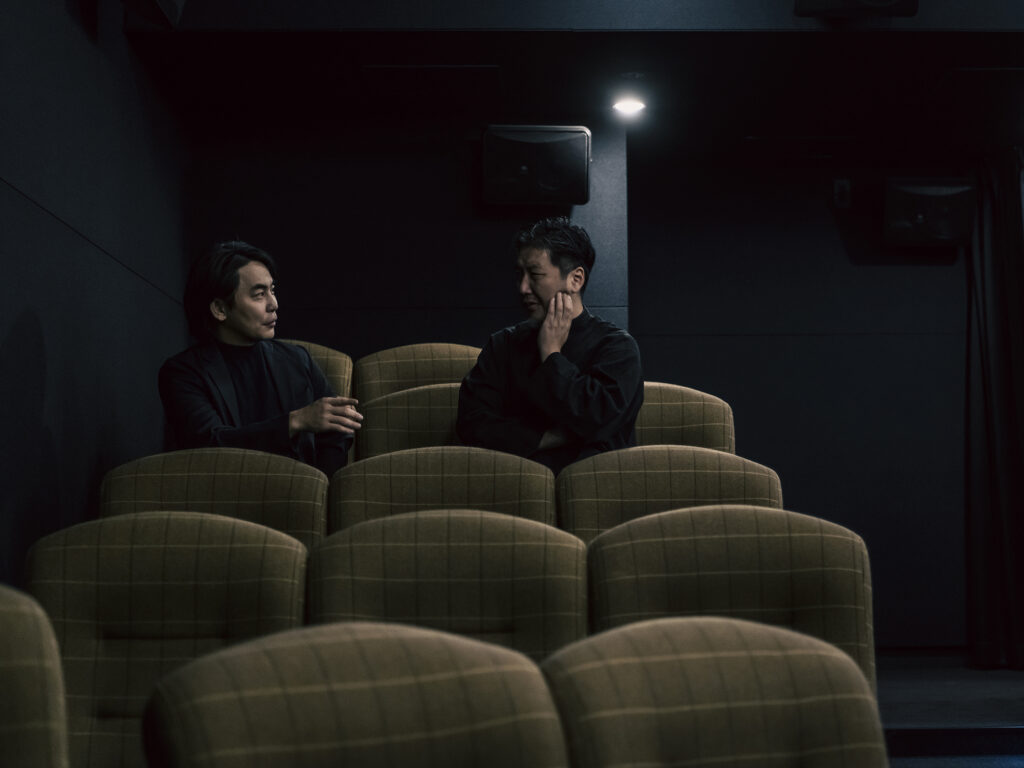
——What is diversity in movies?
Otaka: For some, it would be the characteristics of directors or the theme depicted. For others, it would be a pursuit of the unknown.
Some people might find diversity in the experimental picture. Suppose the winning formula for producing a movie is arranging well-known original works and having famous actors and actresses. Actually, projects paying little attention to the formula secure diversity in film. Or, they don’t make audiences notice such logic in the first place. Besides, it is also essential that people can go to watch it when they want to. Maintaining such a cultural environment secures diversity in the movie.
——You direct the mini-theater on your own. How has it been going recently?
Otaka: Compared to pre-COVID times, audiences have decreased by more than 10 percent. I feel theaters in Tokyo are not affected much, but I heard it has been challenging for theaters in the countryside. Interest in art may drop off as it is not directly linked to daily life.
Shigeta: I think COVID fomented a cultural gap between the city and the countryside. As it was difficult to travel to Tokyo or Osaka at the time, people in the countryside could only know what was going on in the city through social media like Instagram. However, the information available at the time was significantly centralized. Such information fed by social media was based on one’s interest, as algorithms such as interest match and cookies were working behind. In those two years, we had little experience of actually going somewhere else on our own, wandering around streets, and finding something new by chance. I live in Gunma and Tokyo, and the cultural gap between the two is enormous. As I happened to live in Takasaki, a city of film festivals, literacy for movies is unusually high, though (laughs). But I am afraid most people in big malls may not know what kind of movies are showing now in mini-theaters like Cinémathèque Takasaki. It would be difficult for mini-theaters to attract customers until such people stretch themselves to watch movies in the first place.
——What will bring such a change of mind to society?
Shigeta: I think leaders should understand that democracy is not equal to majority rule when they behave. It is easy to make decisions based on majority rule. The core value of democracy is the idea that “I make decisions on my own,” and democracy should be a comfortable place for minorities. True leaders make decisions based on such sense. Deciding everything based on majority rule is identical to building a society that only the people visiting the malls can enjoy. That is nothing but a diversity loss.
Otaka: I agree. We can not decide things merely by majority rule.
The majority rule has remained because people believe they vote on one’s free will. But is it true? Not a few people vote based on social atmosphere. What makes crowdfunding and majority rule different is that crowdfunding has such a function that voting behavior overwrites social norms. Also, crowdfunding reflects individual energy which does not appear in the number of views or accesses. Although some people make much of such a number, views are counted even when viewers play it just to kill time. Achieving several million views might be great, but still, it can be a mere aggregation of low energy. In this sense, crowdfunding can be another barometer of public opinion.
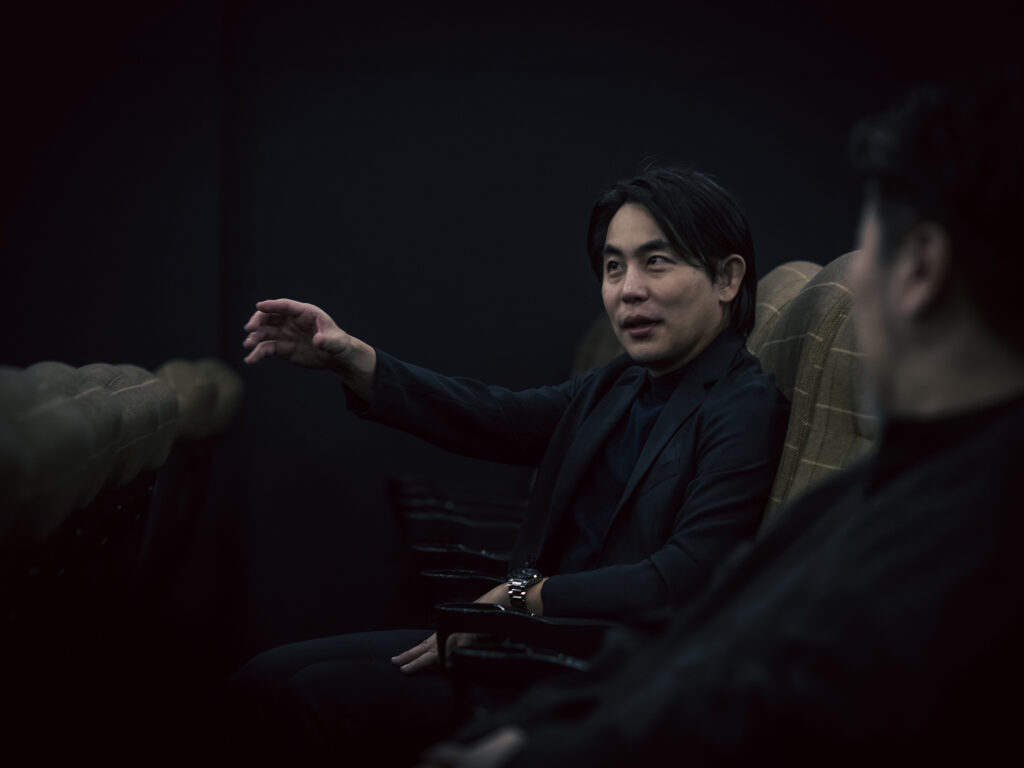
“Crowdfunding is a creation expression and a way for a creative activity (Otaka)”
Shigeta: I have felt for several years that something is wrong with eco-friendly demands on manufacturers. It inevitably costs more to meet the demand. So, I asked the buyer if they would pay the additional cost, but they said they wouldn’t.
Otaka: So, they want manufacturers to deal with everything.
Shigeta: Many people think that recycled products are cost-effective. But the reality is the opposite. The process requires collecting, sorting, and processing, which takes labor and cost. If we do it seriously, the price might be 1.5 times higher than the original price. The problem is that people will not buy the products at such a price, and as a result, people will buy cheaper products that are not eco-friendly. Sustainability matters to everybody on the earth, but the structure is yet to be ready.
To improve society, consumers also need to change their minds. I do business with a facility for people with disabilities called PICFA in Saga prefecture for package design. I have no feeling that I do business with them for support; I collaborate just because I want to break out of the same old designs with them. Only such a win-win relationship can bring something good and move society forward.
Otaka: I can say the same for crowdfunding. The act of funding is more like a creation than support. It is a way of expression and creative activity. The relationship of crowdfunding is neither like begging for money by getting down on one’s knees nor giving money by saying, “All I have to do is give you money, right?”. I want people to recognize that it is a creative action to place money on the voice of people like, “It would be great if someone creates something like this.” or “I think if only there’s something like this.” The idea is similar to what Joseph Beuys called “Social Sculpture.”
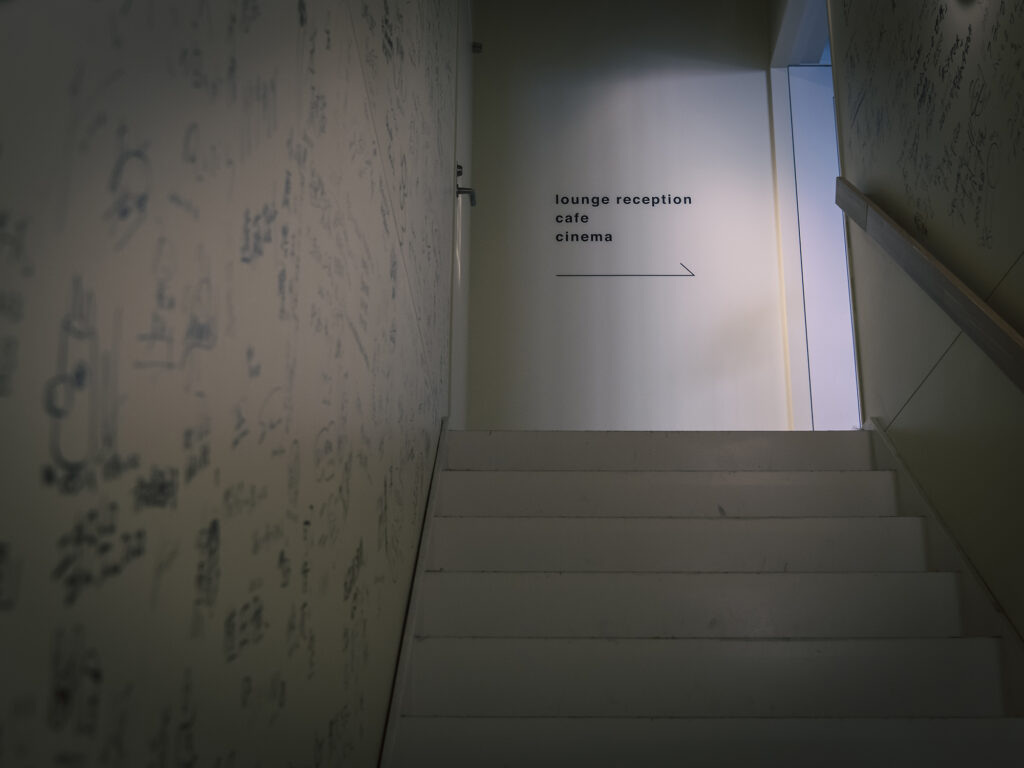
Shigeta: I didn’t know the word “Social Sculpture” until Mr.Otaka told me. What made you aware of the word?
Otaka: I was only slightly interested in art when I attended university.
As a child, I saw Taro Okamoto shouting, “Art is an explosion!” on TV, and I thought art was difficult to understand and that it would be better to keep a distance (laughs). However, since I liked watching movies, I participated in the film and cultural criticism seminar. As I became familiar with artists like Taro Okamoto and Andreas Gursky, I started to think I had to learn more about them. When I was reading a book by Taro Okamoto, I was astonished by how logically he explained what he meant by the phrase “Art is an explosion!”. Although my initial impression of him through TV was somewhat eccentric, I realized that he is a person who develops sophisticated theories. As the experience made me interested in modern artists and art history, later I found out about Beuys and his idea of “Social Sculpture.” Although originally advocated in the context of art, it is also a unique idea from the viewpoint of social movement. The idea is highly suggestive of the core value of democracy. As I majored in political philosophy at university, it took little time for me to get attracted by his idea that stretchs into the field of art and political philosophy.
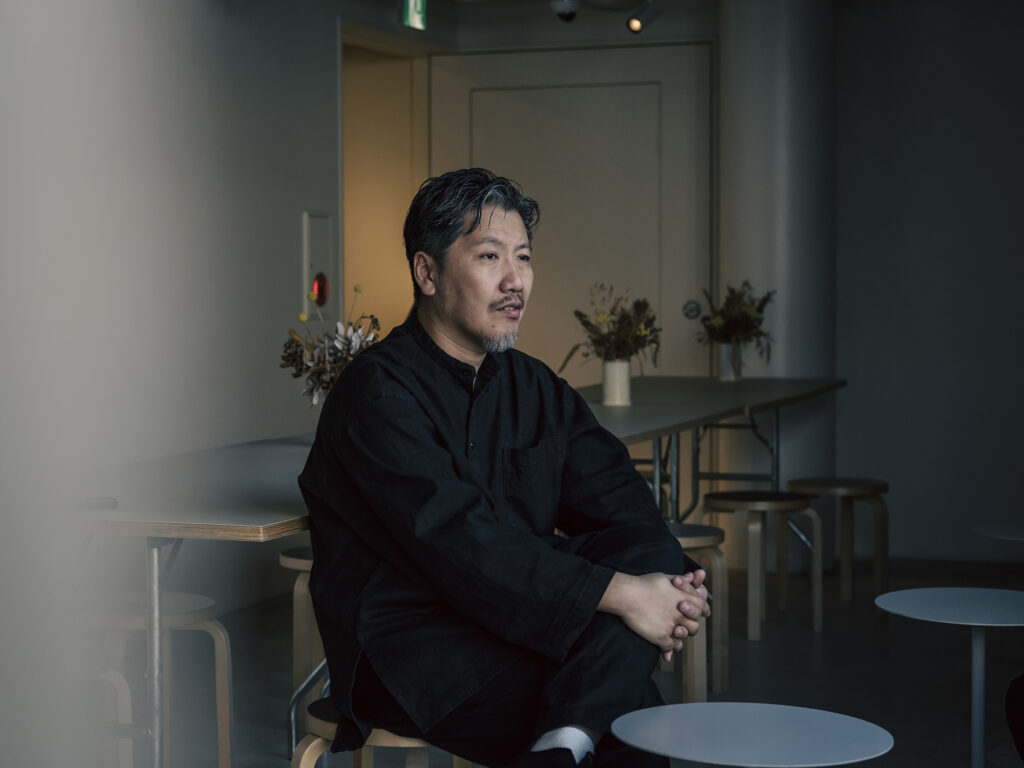
“So, I don’t want individual journalism distorted by pressure in whatever form (Shigeta)”
Shigeta: In my opinion, individual journalism is vital to this era. Social media such as Twitter(X) and Facebook are at the core. Therefore, I don’t want it to get manipulated in any way. I suppose members of your crowdfunding business (MOTION GALLERY) have a strong mindset of journalism. They might simply like movies or find the business fascinating, but besides, they recognize the world like a journalist and have a solid will to introduce creators to the world.
Otaka: I agree.
Shigeta: Individual journalism had a significant influence at a time when nich music was evaluated. The same goes for a time when geeky magazines and new media were created. If the spread of influence of individuals fosters diversity, starting up a media extensively discussing individual idealism might have a meaning.
That being said, if we try to create something together, such enthusiasm often fades away and leaves no ego. Films by large companies might be a good example. So, I think movies screened in mini-theaters resemble self-publishing books, representing individual journalism’s spirit.
Otaka: Self-publishing works are great. In a sense, what Hayao Miyazaki and Hideaki Anno do is self-publish works on a massive scale.
That is why people are willing to watch their work with enthusiasm.
Shigeta: So, I don’t want individual journalism distorted by pressure in whatever form. It would be the most disappointing thing when we try to form rich cultural soil. MOTION GALLERY might have a fair worldview with the strength to resist such pressure.
——What kind of projects gain more support?
Otaka: After all, creative projects gain more support. What I mean by creative project is that such projects are planned and proposed without following the template. A rehash of previous ideas gains little support as people surely notice it. Their passion quickly fades away once they see the business logic behind it. But at the same time, that is a good point of crowdfunding.
It is said that the number of crowdfunding projects with early-bird discounts is increasing. The idea that a discount is necessary to collect money has got away from the essence of crowdfunding. They increase price elasticity to collect money because they don’t have a solid vision and purpose. For me, the nature of crowdfunding should be “support us to make the future everyone looks for.” I want projects with such values to come out more.
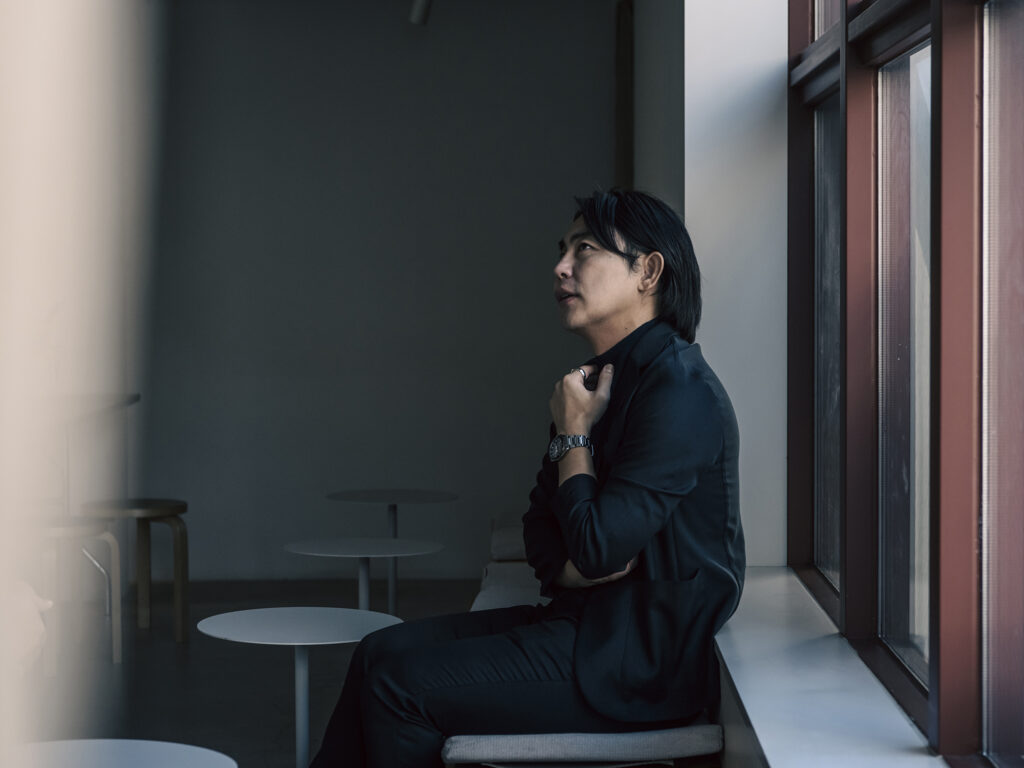
“One of the most influential roles of cultural expression is to relativize and reinterpret one’s mind (Otaka)”
Otaka: Experiencing different values is essential to form a democratic society. If you think you are always right, it will be like a cult. Experiencing various thoughts and learning from them will bring new ideas; movies and arts are media that give us such chances. One of the most influential roles of cultural expression is to relativize and reinterpret one’s mind, and individuality through such experience will enhance the diversity in society.
Everybody has feelings and experiences that can be considered social minorities. If there is nobody to share such feelings and experiences, it makes life difficult. But if cultural expressions like movies can help them notice that somebody out there is feeling the same, it can even help prevent them from committing suicide. In this sense, movies can play a role in securing diversity.
Suppose that everybody only follows financial success in a highly economy-oriented, dog-eat-dog society; there will be no diversity at all. Culture must be rooted in society as a counterpart to such values.
Shigeta: Creating movies and music is a way to express feelings that are difficult to tell face-to-face. Japanese people are not good at communicating directly; instead, an indirect communication style has been considered a virtue. Conversely, delivering thoughts and feelings through cultural expression can be suited for Japanese people.
Rather than complaining about the lack of opportunity to express oneself, I want more people to join and utilize services like MOTION GALLERY to achieve their goals.
Creative activities do not require something extraordinary. I want it to be more democratized and popularized. You can go to the theater if you have nothing to do on your day off. When customs like this are fully rooted, we can realize a mature society where nobody ignores the opinions of minorities. In this media, I am not complaining about the lack of a system or society that is not building it; instead, I want to make the most of this opportunity to take action by pointing out that the lack of a system is, in a sense, due to the lack of energy. My goal is a society where ideals and feelings are interactively shared. I want many people to know Mr.Otaka because what he does is a step toward such a society.

Otaka: Do you have any other plans besides the start-up of media?
Shigeta: I anticipate that the advancement of technology will accelerate the situation where people have no money but much time. With advanced technology, the social system requires less human labor to work. And when that happens, what matters will be how to spend time meaningfully.
Having worked in the beauty business, I think the “view on life and death” is the core value of this business. What does it mean to live and die happily? I feel the need to ask the question myself once again. Perpetual youth and longevity gathered interest when people had plenty of money but no time; however, the situation has changed. Such change will shift people’s interest and energy to questions like “what kind of time usage will make life more meaningful and happier?”
I think there are three cores in beauty care: beauty care from the outside, represented by cosmetics; beauty care from the inside, represented by food; and beauty care from the spiritual side. Based on this idea, I started the media while developing cosmetics and organizing food events. My goal is to tell people what living a spiritually rich life means. Communicating with the thoughts of various people, avoiding falling into a rut by bringing a slight movement to myself daily, living a diverse and spiritually rich life can be achieved. I want to keep delivering such messages to the world as my lifework. Mr. Otaka, would you also tell us about your vision for the future?
Otaka: Although I have several things in mind, I want to create a new role model for mini theaters by starting a membership system for K2 next year. Once I realize my idea, it can be an example for mini theaters and may pave the way for others to follow. It can increase the youngsters’ film population. I want to make some business-wise inventions like that.
Shigeta: Although my great-grandfather founded the company, I have never been taught anything about management by my grandfather or father. So, I taught myself about management and leadership. But I recently noticed that their way of life taught me a lot. When we went out to eat, we always went to restaurants they patronized. Every restaurant received us naturally rather than in a “may I help you?” style. Of course, more or less, they wanted to be treated as patronage, but more than that, they didn’t want their favorite restaurants to close. They showed me that supporting the favorite shops is a way to achieve an ideal society.
Otaka: That makes sense.
Shigeta: Come to think of how to keep mini-theaters going, the tipping model can be a solution. Some people believe theaters are essential in society, but others don’t. However, the ticket price is the same for everybody. I suppose some people want to support Mr. Otaka’s ambitions. Such customers might even pay twice the price for movies shown at the theater Mr.Otaka produces. The same goes for relationships in restaurants. It would be nice if customers paid more than the check when they think they had a great time there.
Otaka: That’s a good idea.
Shigeta: Patronizing your favorites. I want people to realize that such small decisions are also an act of “Social Sculpture.”
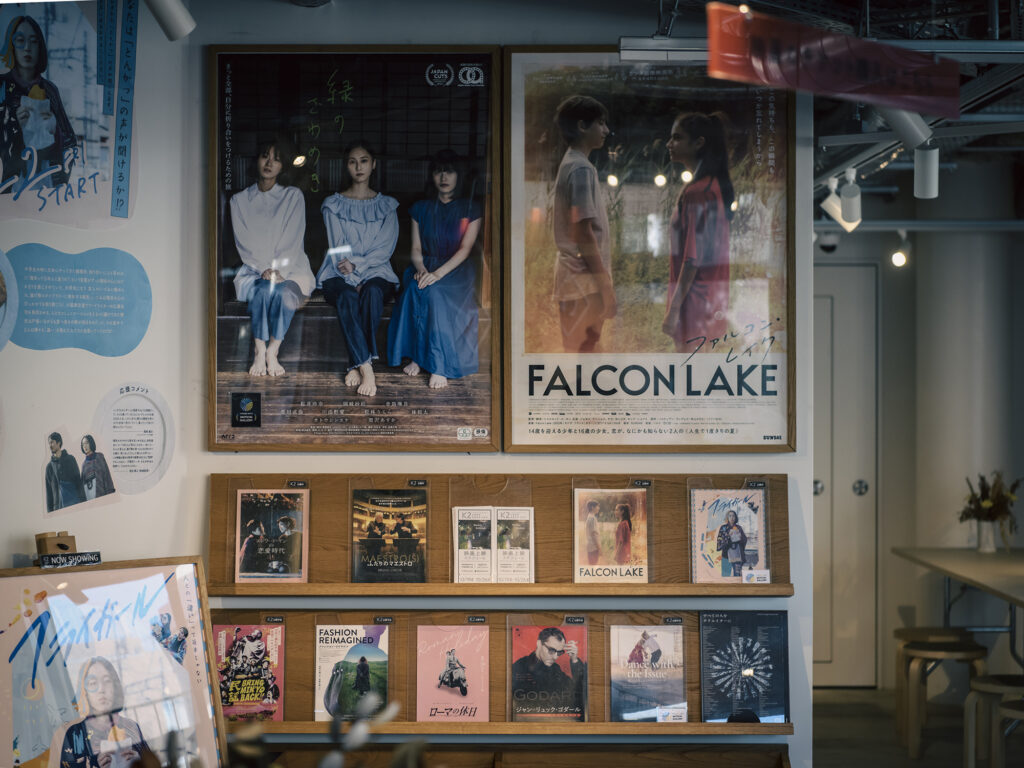
Profile
-
Takeshi Otaka
After graduating from the School of Political Science and Economics at Waseda University, Otaka started his career as a strategy consultant at a foreign-affiliated consulting firm in 2007. Later, he enrolled in the Tokyo University of the Arts Graduate School.
In 2011, he founded the crowdfunding platform MOTION GALLERY. So far, the platform has supported a number of projects by funding more than 7 billion Yen. In 2015, MOTION GALLERY received the Good Design Award.
In 2022, he produced Shimokita Ekimae Cinema K2, a mini-theater directly connected to Shimokitazawa station, Tokyo.Recent Activities
[Modern Art]
Curator of Saitama International Art Festival 2020[Film Producer]
Ano Hibi no Hanashi (2018) 31st Tokyo International Film Festival, Japanese Cinema Splash Section
Boku no Suki na Onnanoko (2019)
Odotte Mita (2020)
Suzuki san (2020) 33rd Tokyo International Film Festival, Tokyo Premier 2020 Section[Production cooperation]
Wife of a Spy (2020) Silver Lion award at the 77th Venice International Film Festival
Kamata Prelude (2020)
Nouten Paradise (2020) -
Masakazu Shigeta
After working as an engineer in the music industry, Shigeta began his career as a cosmetics developer in 2001. Since 2004, he has produced a variety of cosmetics brands in the healthcare business of Nitto Denka Kogyo Co., Ltd., a metal surface treatment company founded by his great-grandfather.
In 2017, he founded Osaji, a skincare lifestyle brand, and became the brand director. He also produced Kako, a specialized shop for home fragrances perfume in Kuramae, Tokyo, in 2021, and a combined shop of Osaji, kako, and a restaurant enso in Kamakura, Kanagawa, in 2022.
In 2023, using Nitto Denka Kogyo’s skills, he produced a pottery brand, HEGE, and he also opened a restaurant serving rice porridge, HENGEN, in Kita-Ueno, Tokyo.
Publications
Taberu Biyou (Eating for Beauty) (SHUFU TO SEIKATSU SHA, 2024)
42-Sai ni Nattara Yameru Biyou, Hajimeru Biyou (Beauty cares to quit and start when you turn 42) (Takarajimasha, 2022)
Information
MOTION GALLERY
MOTION GALLERY is a pioneer of crowdfunding platforms in Japan. Starting in 2011, it has provided society with projects with new values and diversity.
https://motion-gallery.net/
Social Sculptor Foundation
Under the philosophy of “Social Sculpture” advocated by Joseph Beuys, the Social Sculptor Foundation reinterprets and realizes the idea under the current environment and supports the artists creating change in society.
https://socialsculptor.tokyo/
Shimokita Ekimae Cinema K2
With “Share the Culture at Street Entrance” as a key phrase, K2 opened in Shimokitazawa, Tokyo, in 2022. The manner movie in which the local residents are cast is worth watching. A new membership system will be released in January 2024.
https://k2-cinema.com/
-
Photographs:Eisuke Komatsubara
-
Text:Masahiro Kamijo